Long Read:
I do not know who needs to read the English playwright, poet, and actor, widely regarded as the most excellent writer in the English language and the world’s greatest dramatist Willian Shakespeare in his historical drama, a book about a Roman Empire, general, a dictator and a politician Julius Caesar, as a way of safe commentary on the political pandemonium in the Gambia at the time, telling the story of events in the play is the feast of Lupercal.
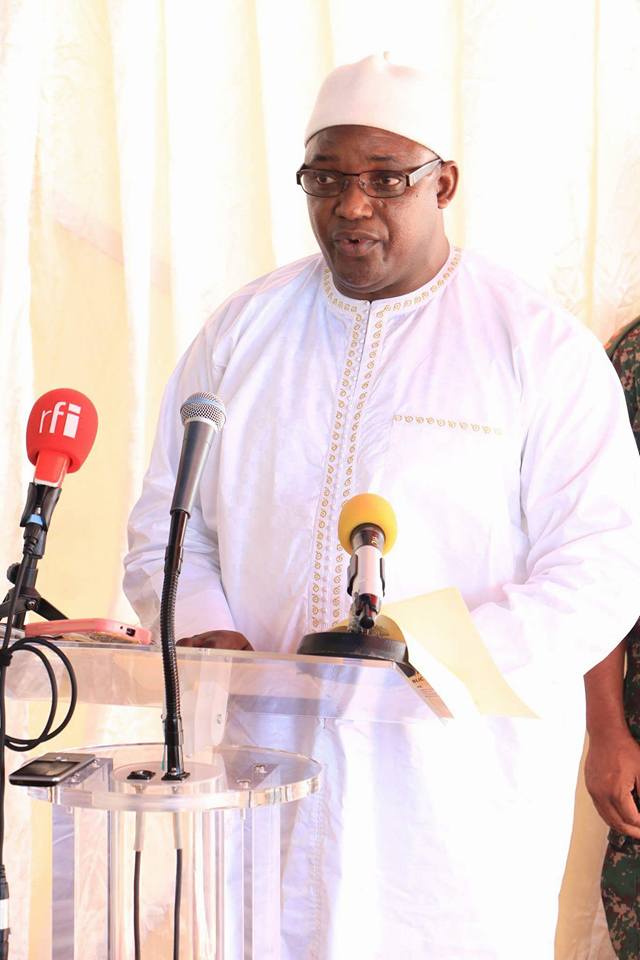
Cassius talks about Brutus in joining a conspiracy against Julius Caesar. Meanwhile, Mark Anthony offers Caesar a crown, which he refuses three times. This irritates Casca, Cassius, Brutus, and others. Finally, the conspirators gather at Brutus’ house.
I first read Julius Caesar’s play as a required text in my English Literature class in form five at high school, studied it intensively, and came to know it intimately. Even though Julius Caesar is little read outside the Gambian classrooms and rarely performed, many of the play themes resonate for me in the context of modern Gambian political history.
The play Julius Caesar is attractive, especially for those interested in history. The fact that neither side is wrong or right helps make the story thought-provoking, as is the fact that the play has more good guys than villains.
However, I guess it would be an interesting read to be savored William Shakespeare was a gift by the heavens to humanity.
Julius Caesar was/is a compelling character in history and fiction. The historical Julius Caesar was a man of power. He was very unequivocal about where he stood on matters of law and power.
He willfully subdued law for power, prescribing to his subjects: “If you must break the law, do it to take power… in all other cases, observe it.” The law exists for power, nothing more, he seemed to say.
I am not sure he saw any other relationship between law and power apart from the former serving the latter. He would do everything, including murdering the law, to keep power.
Even death was not enough to scare him from pursuing his first love – power: “I have lived long enough to satisfy both nature and glory,” he told a conquered people who were scared they could lose their republic to the ambition of the leader who was not bothered about anything else outside taking power and retaining it for its sake.
By satisfying nature, Caesar meant he had lived long enough to die; by satisfying glory, he meant he had reached the peak of the political leadership of the only superpower of his age. So, nothing else mattered to him beyond coming, seeing, and conquering his enemies.
The law escalates to higher grounds in power, fame, and wealth. He had reached the port of power; nothing else mattered. The Gambia does not want Julius Caesar in the Gambia.
President Adama Barrow’s first term expires on January 19, 2022. What happened to the 2021 presidential election? What votes did he bring to President Adama Barrow? I hope you have the statistics of the votes President Barrow secured for his landslide victory? Would you say that what President Barrow got was expected from Gambian voters?
When Julius Caesar crossed the Rubicon in 49BC and entered Roman Italy, he discovered that his ex-ally and now arch-rival, Pompey, had tactically moved to Greece. Caesar did not wait for the rival; he went for him and his men.
Caesar had pure scorn for Pompey and his legions stationed in Spain. He derisively announced that he was “going to Spain to fight an army without a general, and then to the East to fight a General without an army.” His impression of Pompey was that of a General with “no idea of winning a war.”
Furthermore, both used to be allies. Between them, they levied wars against the senate, bought votes into consulship, set the rabble against nobles, even respected Cicero got exiled for opposing their alliance.
They were united by the unstated desire to take Rome out of its prized Republican politics. Their ambition was to be the unchallenged Masters of the State.
President Adama Barrow’s first term was winning a second term. Thus, he shoved his political opponent’s body in and out of bed -and then, back to bed to get satiated.
The deed is done, the second term is here already, and it is about winning the Gambia forever for himself and his ‘people for a more outstanding third term. The imperial President will not share his legitimate power with anyone.
So, last week, he left Nigeria to attend the 60th ECOWAS Session with the state’s key in his pocket. There will be fights, rough and tough. These friends will war and will drag stupid us into their coming pig fight – and we will all be sorry for ourselves.
We will not know that the fights we will see around us would be for politicians to possess and pillage the land, not nourish it. It was so with former friends Caesar and Pompey. Cassius Dio paints the picture so elegantly in his ‘Roman History’: “Because of the insatiable lust for power” by these former allies, “Rome was being compelled to fight both in her defense and against herself so that even if victorious, she would be vanquished.”
Moreover, at the battle of Pharsalus in 48 BC, Caesar saw the end of Pompey, his former ally. He won and got the whole of Rome as his prize. However, did that translate to victory for Rome and its people?
The war ultimately set the stage for a series of events cascading imperial Rome from republicanism to dictatorship, to further turmoil, and, finally, to decline and decay.
This victorious army of the elite does not take prisoners. Instead, they pulverize all who will not crack- friends and foes. Hungry, ambitious political allies are demons. J.D Brown has told us in his Daughter of Eve series that the rules for demon engagement – and slaying- are simple, and they are just three:
Never tempt a demon with a promise you cannot keep.
Never trust a demon.
Never save a demon’s life.
That hungry tiger you saved will come back to hunt you. Caesar did that to Pompey.
Shakespeare’s Julius Caesar is not, of course, really about Julius Caesar. Its principal protagonist is the noble-minded and temporizing Marcus Brutus, with an essential supporting role for the charismatic but flawed Mark Antony, and, in the end, the looming shadow of Octavius, who will overthrow everything both men have strived for.
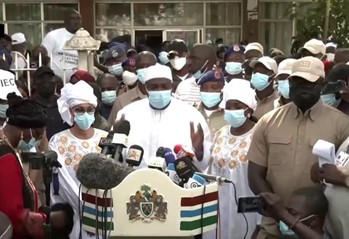
However, Julius Caesar is also about far more than the character and conduct of these individuals, however significant they may be. It is also profoundly about political themes that resonate deeply in a young and maturing democracy like ours.
The play, after all, is about power, its acquisition and exercise, its temptations and abuse, its dependence on public support and elite cultural acquiescence, and the principles and values (honor, loyalty, fraternity, democracy itself) undergird its place in free societies.
It depicts the power acquired by Julius Caesar through military success and widespread adulation; the fear amongst influential Senators and members of the Roman establishment that this power would turn into a dictatorship; the creation of a conspiracy motivated as much by jealousy and resentment as by democratic principle.
The competing pulls (especially for Brutus) of personal loyalty and national duty; the manipulation of public opinion (first in favour of the conspirators, as Brutus explains ‘not that I loved Caesar less, but I loved Rome more’, and then against them).
The skilful populism of Mark Antony (whose rhetorical prowess in swaying his audience is masterfully depicted by Shakespeare in the brilliant ‘Friends, Romans and countrymen’ speech).
The fickleness and bloodlust of the mob (which in one searing scene kills the wrong Cinna, a poet, because he bears the name of the conspirator they have set out to kill: ‘It is no matter, his name’s Cinna’); and finally, since power abhors a vacuum, the ascent of Octavius, who will establish the very imperium that Julius Caesar was killed to prevent. Shakespeare’s magnificent oeuvre is no better play for students in contemporary politics and human nature.
A national leader nearly 56 years of Gambian quasi-democracy, a national leader President Yhay Jammeh has become so popular as to threaten (in some critics’ opinion) the idea of democracy itself.
Cassius’ observation on Caesar’s power—‘Why, man, he doth bestride the narrow world/ Like a Colossus, and we petty men/ Walk under his huge legs, and peep about/ To find ourselves dishonorable graves—sounds like many similar comments made about the Gambia’s Yahya Jammeh, unlike his predecessor the founding father of the Gambia Sir Dawda Kairaba Jawara and one of his successors the Third President of the Gambia President Adama Barrow and Sir Dawda Kairaba Jawara. The two Presidents are not similar to Julius Caesar.
President Sir Dawda Jawara was not a threat to the Gambian democracy. Similarly, President Barrow is no threat to the Gambian emergent democracy.
Consequently, Sir Dawda Jawara and President Adama Kairo Barrow instilled a reverence for democratic institutions and practices in the Gambia.
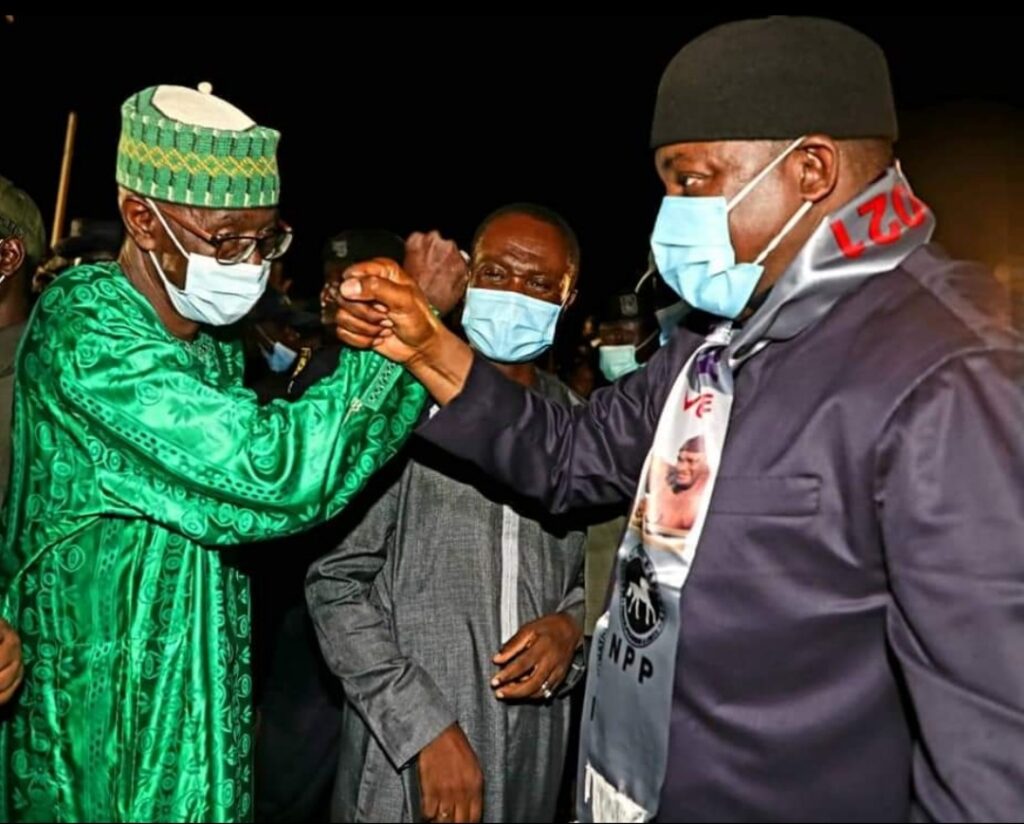
President Barrow is a convinced democrat who spent his 5-years as President instilling the habits of democracy in his people; at the crest of his rise, he even demonstrated impressive democratic credentials of giving extensive civil liberties (freedom of expression, freedom of the press, freedom to form associations).
Moreover, President Barrow checked and recognized that democracy implies the existence of those civil and political freedoms to speak, publish, assemble, and organise necessary to political debate and the conduct of electoral campaigns. The Gambia does not want any Julius Caesars.
In his five years as President—unlike Caesar—Adama Barrow carefully nurtured the country’s infant democratic institutions. If Julius Caesar had behaved like Adama Barrow, he would never have come to an untimely demise at the hands of his colleagues.
Adama was reelected on December 4, 2021, and an earthquake rocked the Gambia and the Gambia Diaspora community on his landslide victory. Many saw this as a portentous foreshadow (the soothsayer in Julius Caesar instead saw omens too).
Cynics—at home and abroad—waited for his second term to fight over the spoils; few predicted the democracy President Barrow had been so proud of would survive.
Furthermore, the Gambia’s emergent democracy would survive. There will be no divisive and toxic politics and ethnolinguistic squabbles around President Barrow’s institutional and social effects of fiscal managerial and capacity building reforms and restructuring of public institutions.
Today, the Gambia needs a modest leader of political tolerance and, in the context of democratic theory, a figurehead of unimpeachable integrity and considerable political and administrative acumen to govern the Gambia.
As a result, the Gambian people did not weep for democracy under Adama Barrow as Gambians did weep bitterly for democracy during twenty-two years of Yahya Jammeh’s kleptomaniac rule. The country saw democracy being kicked n its back, made it look ugly, and Gambians moved on when democracy was under siege.
President-elect Adama Barrow never doubted in his mind endure Gambians to sit down and have a weep for anti-democratic measures to severely curtailed civil and political freedoms.
However, on the contrary, he had spent his five years of political executive management trying to instill the habits of democracy and principles of fundamental human and people’s rights in his people: a disdain for dictators(Caesar and Jammeh), a respect for parliamentary procedures, an abiding faith in the constitutional system.
Moreover, indeed, Barrow’s practice, when challenged within his government and party, is to offer his open-mindedness and tolerance, his signature trait of inclusive and democratic governance and leadership; he usually got his way, but it was hardly the instinct of a Julius Caesar and Yahya Jammeh.
In five years as President —unlike Caesar—Adama Barrow carefully nurtured the country’s infant democratic institutions. He paid deference to the country’s legislature, judiciary, and the private media and even to its largely otiose and Gambians have seen such reporting and debates; he never let the public forget that these notables outranked him in protocol terms.
He regularly articulates his ministers, explaining his democratic and governance policies and visions and seeking their feedback.
He subjected himself to cross-examination by the people who entrusted the legitimate power, fractious but undoubtedly talented opposition on social media, allowing them an importance out of all proportion to their numerical strength because he was convinced that a robust civil society opposition is strong is also essential for a healthy democracy.
He obliged his special advisers, cabinet ministers, and civil servants to be just as respectful to the judiciary, the legislature, and the private media.)
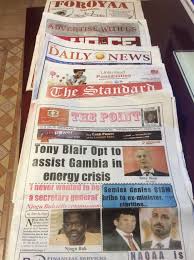
If Julius Caesar had behaved like President Adama Barrow, he would never have come to an untimely demise at the hands of his colleagues.
President Barrow never forgot that he derived his authority from the people of the Gambia, as both Brutus and Antony sought legitimacy in the will of the Roman people.
Not only was he astonishingly accessible for a person in his position, but he started the practice of daily prayers at the statehouse mosque and meetings with diverse communities at State House, a practice that continued until the dictates of security finally overcame the tradition.
During the five years of his Presidency, Adama Barrow got the Gambia accustomed to such attitudes and conduct.
By his quiet, somber demeanor and governance style and speeches, his exhortations, and above all by his example, President Adama Kairo Barrow imparted to the institutions and processes of democracy a dignity that placed it above challenge from would-be tyrants.
President Sir Dawda Kairaba Jawara, however, did briefly seize untrammeled power by declaring a state of Emergency in 1981, amid the 1981 aborted revolution led by so-called Markist leaning revolutionary Mr. Kukoi Samba Sangina, as well as President Yahya Jammeh, declared a 90-day state of emergency in 2017, just for two days before he was supposed to cede power after losing elections to President Adama Barrow and Caesar’s identification of himself with the nation echoed eerily in his classic wheeler-dealer’s casual bravado Yahya Jammeh said: “will rule the Gambia for a billion years.”
However, a voting test in 2016 he called a free election to vindicate himself, lost it, and surrendered office with cavil. His instincts, too, were undemocratic, not a Caesar’s.
Shakespeare seems to have anticipated such outcomes: Caesar’s assassination fails too, and the events it unleashes result in the triumph of a new Emperor. The latter would go on to be even more powerful than the man assassinated in the name of liberty.
In all three cases, as in Julius Caesar, the assassins succeeded in their immediate objective (the killing) and failed to achieve their bigger goals.
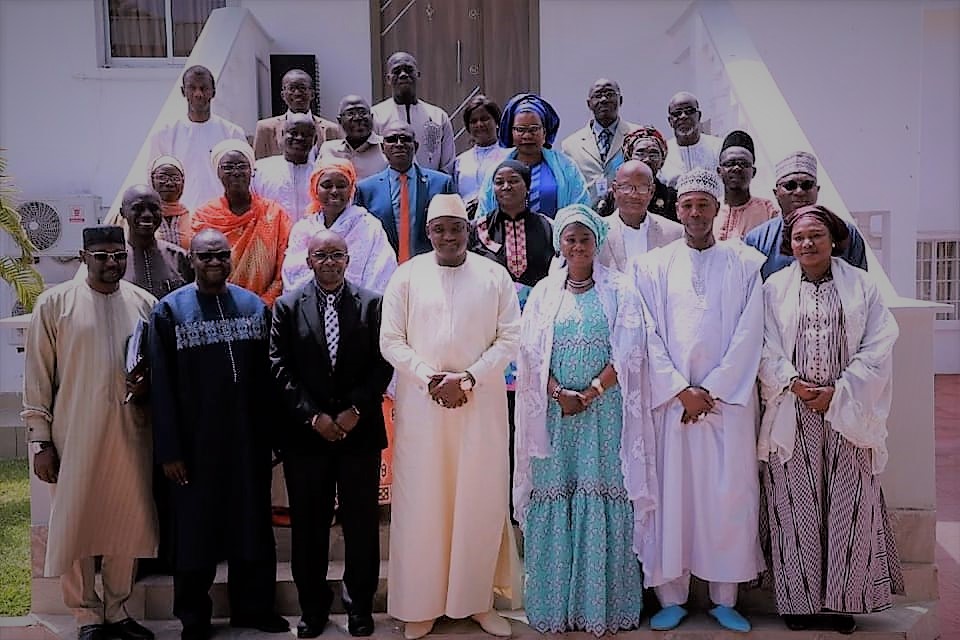
There are some more typically Gambian moments in the play. The mob’s behavior when Antony exposes Caesar’s mutilated corpse to their gaze—as they rush out seeking vengeance on whomever they can find, whether sinner or Cinna—will remind many in the Gambia of the behavior of Gambian voters after Yahya Jammeh’s exile.
Innocent party supporters and militants of the APRC, including many supporters of Yahya Jammeh, were attacked and even assaulted in the mobs’ mindless thirst for revenge.
Marc Antony’s revelation to the public that Caesar had left them everything in his last will and testament—that, in effect, he had died for them—spurred them on just as similar speeches about Yahya Jammeh’s devotion to the poor and the downtrodden incited Gambia’s frenzied victims of torture survivors.
In Julius Caesar, the conspirators bring down a strong leader, plunge Rome into chaos, and are themselves supplanted by another strong leader.
In the Gambia, a motley coalition of opposition parties combined to oust Yahya Jammeh in the 2016 presidential elections, only to attempt to annul the elections into a political impasse and acrimony immediately afterward, resulting in his exile in Equatorial Guinea.
There is Shakespeare’s superb depiction of political rhetoric, especially in Mark Antony’s famous speech skewering Brutus (‘Was this ambition?/ But Brutus says he was ambitious;/ And Brutus is an honorable man.’).
It is said that President Adama Barrow owes his position today more to his democratic credential and tolerance than to any other quality, let alone in actual infrastructural development accomplishments.
President Adama Barrow in his first term and to begin his second term in office has already started to prompt parallel difference to the twenty-two years of dictatorship-era of Yahya Jammeh, but President Barrow lives in an era in which democracy is not only more entrenched; it is also bolstered by a panoply of institutions, from an independent judiciary to a free press and proliferating social media, which make authoritarianism considerably more difficult to impose.
Still, the echoes of Shakespeare’s play continue to sound in the ears of the Gambian observer. His depiction of the Roman masses, whose name power is wielded and whose support or disaffection can sway its foundations, is masterful, even cynical.
How the powerful rest their appeal on concern for the ordinary person, for instance— Antony reminds the crowd that ‘When that the poor have cried, Caesar hath wept.’
The tendency of leaders to identify their interests with those of the masses, which crops up repeatedly in the play, is a recurrent feature of the Gambia’s fractious democracy and populist political rhetoric.
Of course, some details of Shakespeare’s depiction would apply to any society.
Fatoumatta: There is the inability of famous leaders even to contemplate the prospect of losing power, let alone being repudiated by their supporters (when Yahya Jammeh called the elections of 2016, it was certainly not in the expectation of the resounding defeat that followed, and his surprise at the defection of some of his principal aides mirrored Caesar’s astonishment at seeing his closest friends stab him in the successor government.
Finally, there is Shakespeare’s superb depiction of political rhetoric, especially in Mark Antony’s famous speech skewering Brutus (‘Was this ambition?/ But Brutus says he was ambitious;/ And Brutus is an honorable man.’) Gambian democracy has thrown up a series of masterful orators adept at swaying the masses with their speeches; it is said that President Barrow owes his position today more to his mastery of the Gambia’s dominant vernacular Mother tongue languages power of oratory than to any other qualities.

Caesar’s thrice refusing the crown is cynically cited by Antony as proof of his disinclination for power, even as his actions and overweening ego took Rome towards despotism. In contrast today, President Barrow’s backers point to his respect for democratic procedures even as his government appoints sympathisers to head government institutions, recruits opposition to his policies as ‘inclusivity and national interest,’ and charges of reconciliation.
Judge leaders by their actions, not by their words, Shakespeare seems to be telling us—advice that remains pertinent in today’s Gambia.
Power always abhors a vacuum, and democracies soon want them back even when they turn against solid leaders. An era of strong and united grand coalitions of political parties saw the election of President Barrow on December 4, 2021, presidential election.
Five years of coalition government under the mild-mannered, soft-spoken President Barrow led the Gambian electorate to reelect President Barrow for a second term.
Democracy, Winston Churchill famously wrote, is the worst system of government in the world, except for all the others. One of its defining characteristics is its unpredictability since democracy reflects the wishes of large numbers of people expressed in the quiet intimacy of the polling booth.
Nevertheless, the voters of the Gambia have repeatedly confounded all the pundits and pollsters—in 2016 by placing the country in the hands of a governing coalition led by President Adama Kairo Barrow, and then most recently by granting an overwhelming majority securing 53 percent with a landslide victory in the biggest test of its democracy since 2016 presidential elections that ended autocracy in the Gambia.
By Alagi Yorro Jallow











Recent Comments